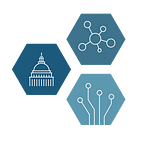Issues in Science and Technology: A New Compact for S&T Policy
By Chairwoman Eddie Bernice Johnson (D-TX)
Since I came to Congress in 1993, increasing diversity in science and technology has been a driving focus of mine. I know from experience that talent is everywhere and that far too often students from underserved communities are left behind. Unfortunately, while I and many passionate leaders such as Alondra Nelson, the deputy director for science and society in the White House Office of Science and Technology Policy, have spent our careers working to advance diversity, equity, and inclusion in science, technology, engineering, and medicine — the STEM fields — there is still so much more to be done. Nelson ably presented some of the challenges in her recent Issues interview (Fall 2021). Through my leadership of the House Committee on Science, Space, and Technology, I have listened to Nelson and numerous other experts and have reframed the problem, and the suite of solutions available to us.
Inclusive innovation is not just about representation. It is not just about creating new opportunities and breaking down barriers for historically marginalized groups to enter and remain in STEM fields, although that is a necessary step. To promote STEM diversity and equity, I developed the STEM Opportunities Act, the MSI STEM Achievement Act, and the Combatting Sexual Harassment in STEM Act. My committee also developed the Rural STEM Education Act and the Regional Innovation Act to address the geographic diversity of innovation.
But diversity alone will not catalyze the paradigm shift we need to see. We need to rethink, at the highest levels, how we prioritize our investments in science and technology. To date, national security and economic competitiveness have dominated the discussion. This focus has served the nation well in many ways, but it has failed to address many of the challenges Americans are facing in their lives. We are faced with a web of complex and interconnected societal challenges ripe for innovative solutions — access to safe drinking water, gaping economic inequality, misinformation, addiction and mental health crises, climate change, and the list goes on. For too many Americans, science and technology is an abstraction that has no bearing on their daily lives. I echo Alondra Nelson’s call for increased transparency and accountability in US science and technology policy. And I commend President Biden for establishing the Science and Society Division at the Office of Science and Technology Policy.
Last year, led by my committee, Congress enacted legislation to establish a National Artificial Intelligence Initiative that has trustworthiness, transparency, equity, fairness, and diversity as core principles. I will make full use of my final year as a member of Congress and Chairwoman of the Science Committee to advance the congressional conversation around inclusive innovation. Already, I have proposed that the new Technology, Innovation, and Partnerships Directorate at the National Science Foundation be focused not only on competing with China, but on addressing the full breadth of challenges we face. Moreover, the legislation I introduced pushes NSF to take a much more expansive view of who gets to have input to the research agenda. We cannot let China set our agenda. We lead only by being the best possible version of ourselves. I believe we should steer our science and technology policy toward that goal and that, in doing so, we will strengthen this country, and its innovative capacity, from the inside out.
Eddie Bernice Johnson (D-TX) is chairwoman of the House of Representatives Committee on Science, Space, and Technology.
Originally appeared in Issues in Science and Technology
https://issues.org/new-compact-science-technology-policy-nelson-forum/
